Veteran sailing official David Tillett recognised as SA Sport Hall of Famer
South Australian sailing umpire and administrator David Tillett AM is set to join the SA Sport Hall of Fame, recognising an extensive and storied career officiating the sport he loves.

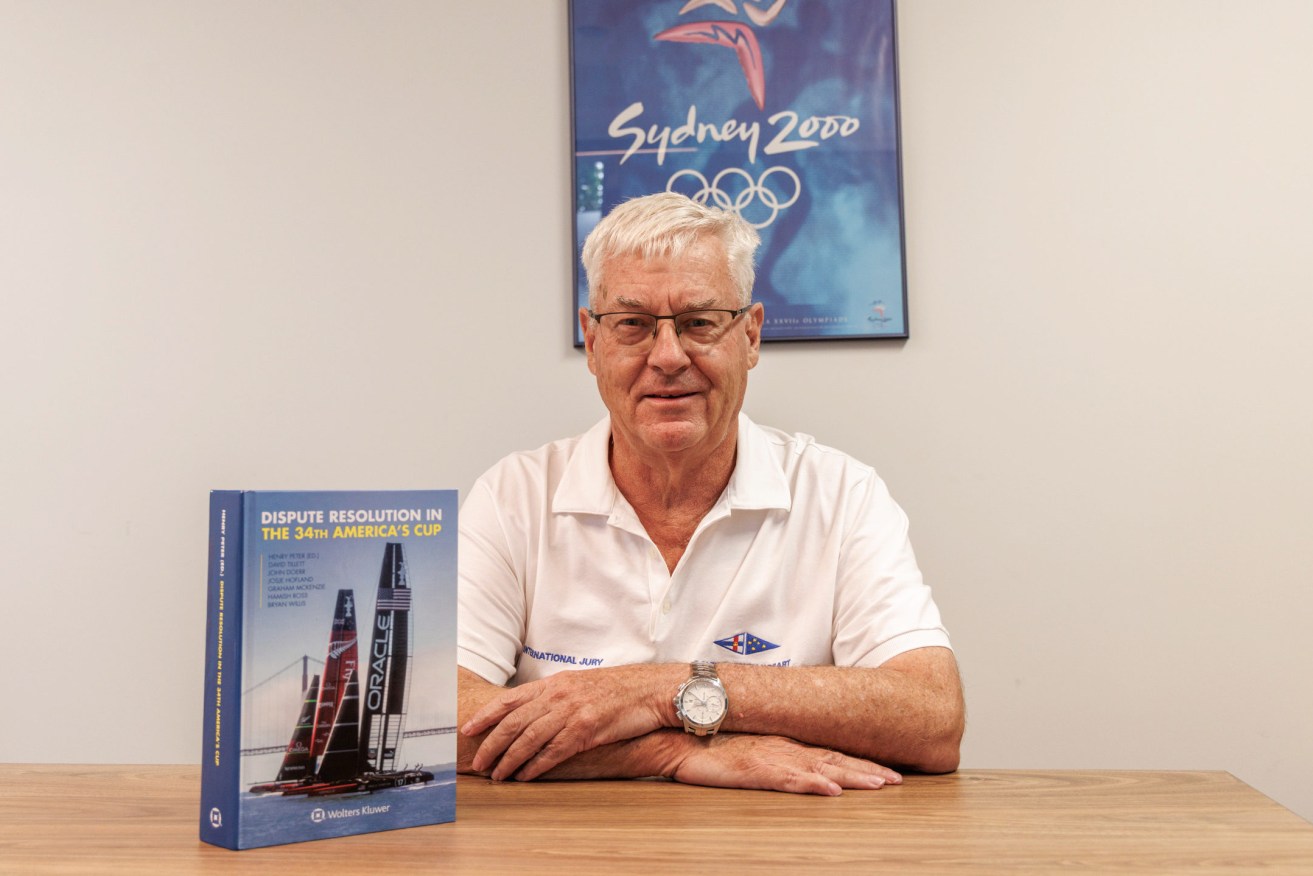
David Tillett is one of six inductees into the Hall of Fame this year. Photo: Tony Lewis/InDaily
Tillett, 67, has spent the last 30 years making the big calls at the top rungs of international sailing as both an umpire and jury chairman.
His career as an official has seen him judge the sport’s highest-profile events at the Olympics and America’s Cup, leading international arbitration panels, juries and umpires in making the tough decisions and resolving the lucrative sport’s most acrimonious disputes.
A commercial lawyer by trade but a sailor at heart, he represents just the second from the sport to be inducted into the SA Sport Hall of Fame after three-time America’s Cup skipper Sir James Hardy OBE was bestowed the honour in 2013.
Tillett, who has just returned from chairing the international jury overseeing this year’s controversial Sydney to Hobart yacht race, said it was an honour to be recognised in his home state.
“I’ve had other awards and honours and things like that on a national, international basis, but to be recognised in such a prestigious position in South Australia is a great honour,” he told InDaily.
“I was surprised because it hadn’t been on my radar in any way.
“I was pleased that they were recognising somebody who’s had a significant involvement in not just an athletic perspective – because my involvement is quite some time ago from that point of view – but from an administration and race official, judge, umpire etc. point of view.”
Tillett is the third Hall of Fame inductee to be announced in this year’s class following Australian cricketer Jason Gillespie and Olympic diver Valerie Beddoe.
Over the coming weeks, InDaily will reveal a further three athletes who have been selected to join the distinguished group in 2022.
On the water
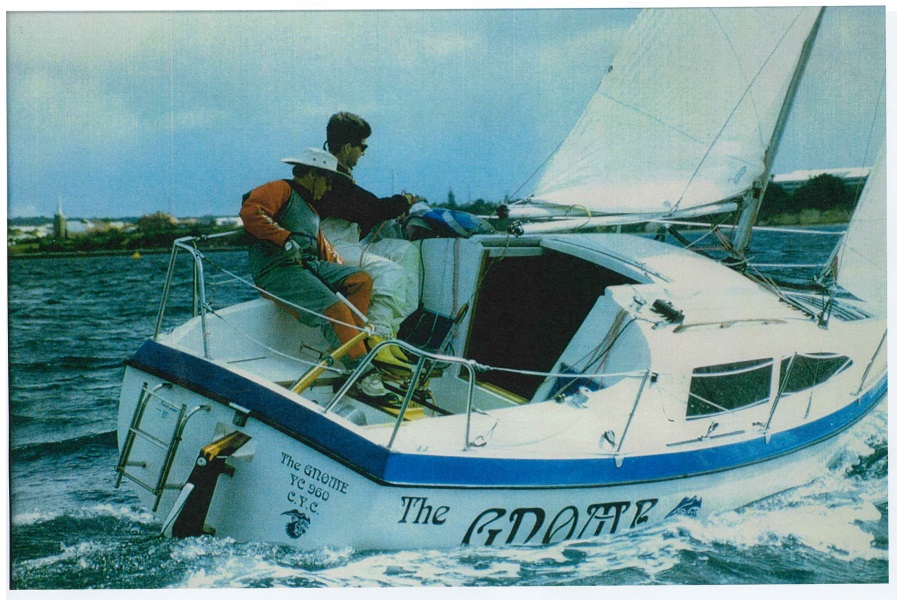
Tillett (left) skippering in the Noelex 25 Australian championships in the 1990s. Photo: supplied
Growing up on the Glenelg seafront with a view of the yachts from his window, Tillett’s love affair with sailing began early.
We very much clicked with the sport, the water nature, having grown up on the seafront.
He took on his first junior training as an eight-year-old with his identical twin Chris, charting an alternative path to their dad’s career as a racing driver.
“My mother was not particularly keen on her identical twins going into car racing and thought that sailing was a much more appropriate sport,” Tillett said.
“We got taken down to junior training and very much enjoyed it, after a bit of time there our parents bought us a boat of our own which the two of us sailed together.
“We very much clicked with the sport, the water nature, having grown up on the seafront.”
The Tilletts would make their mark with the Glenelg Sailing Club and the Holdfast Trainers as juniors in the early 1960s.
With David calling tactics as crew and Chris steering the boat as helmsman, the twins would win the state under-16s championships three years in a row before taking out the national championship in 1968-69 and ’69-70.
But the family duo had their eye on the 1969-70 international cadet world championships in Hobart which no Australian boat had competed in since 1962.
“There was a seven-year gap where nobody really knew in Australia just what the standard is,” Tillett recalls.
“Are we ahead of the game? Are we behind? How will we go?”
Lining up against 78 other teams from across the world, Chris and David blitzed the field – winning their first four races to dethrone the reigning world champions Belgium. The pair would go on to take out their third-straight national championship in 1970-71.
Yet despite their junior success, the twins soon went their separate ways after David concluded his best chance of being involved at the sport’s elite level didn’t lie with competing.
Whether or not I would have been good enough to have got to the Olympics – who knows, probably not.
“I wasn’t big enough for crewing, weight wise, and we made a decision … that Chris would go his way and I would go my way,” Tillett said.
“I would have liked to continue at a high level from the point of view of competing.
“But whether or not I would have been good enough to have got to the Olympics – who knows, probably not.”
David started a degree in law hoping to open the door to a career in sailing administration, while Chris began his journey towards eventual selection at the 1984 Olympic Games.
In the rulebook
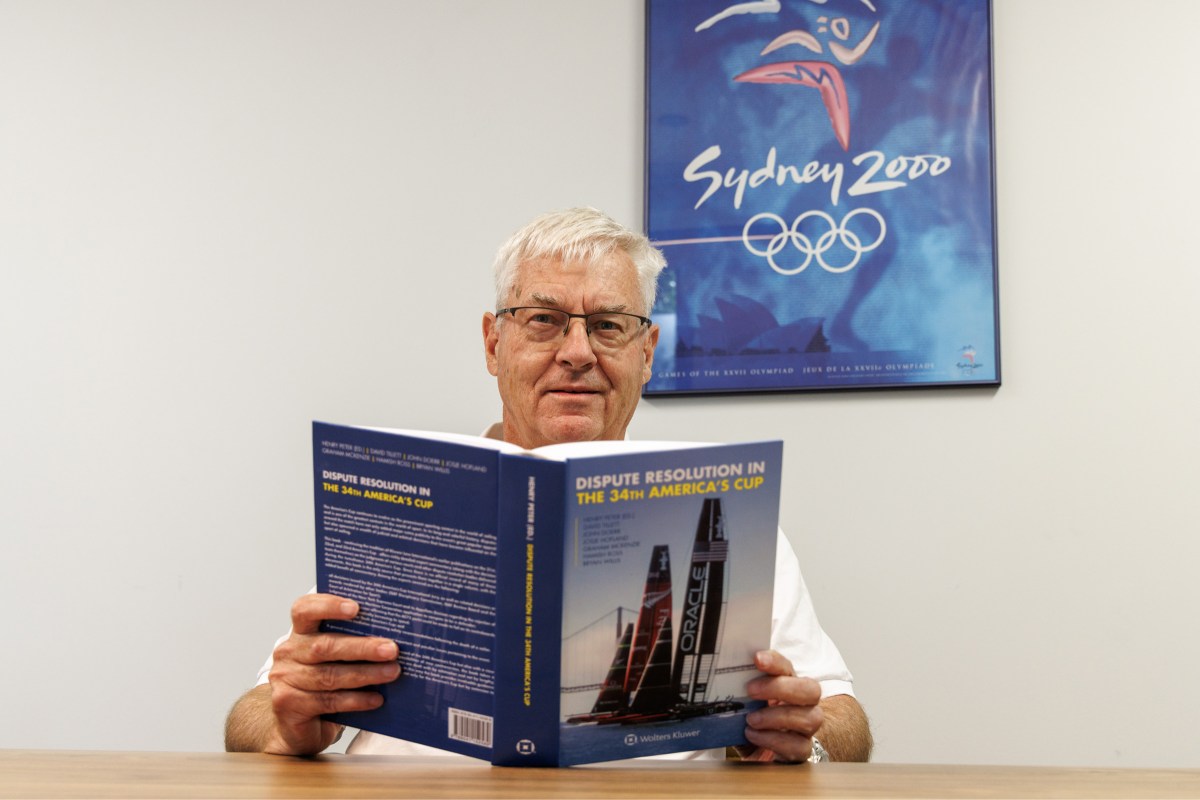
Tillett with a copy of the 2013 America’s Cup dispute resolution book. Photo: Tony Lewis/InDaily
Sailing carries one of sport’s most complex arrays of rules and regulations. When InDaily visits Tillett’s city law offices, he shows us a dispute resolution log book spanning more than 800 pages listing the decisions made by the international jury and arbitration panel he chaired at the 2013 America’s Cup.
The stakes of the race are just as big.
US billionaire Larry Ellison’s successful bid to defend the America’s Cup in 2013 from challengers New Zealand reportedly cost him more than $US300 million, while other successful campaigns have often reached a net spend upwards of $US100m.
“It’s very closely scrutinised,” Tillett said.
“You’ve got so many sea lawyers etc. who’ve got views on things, but it’s all part of the game.”
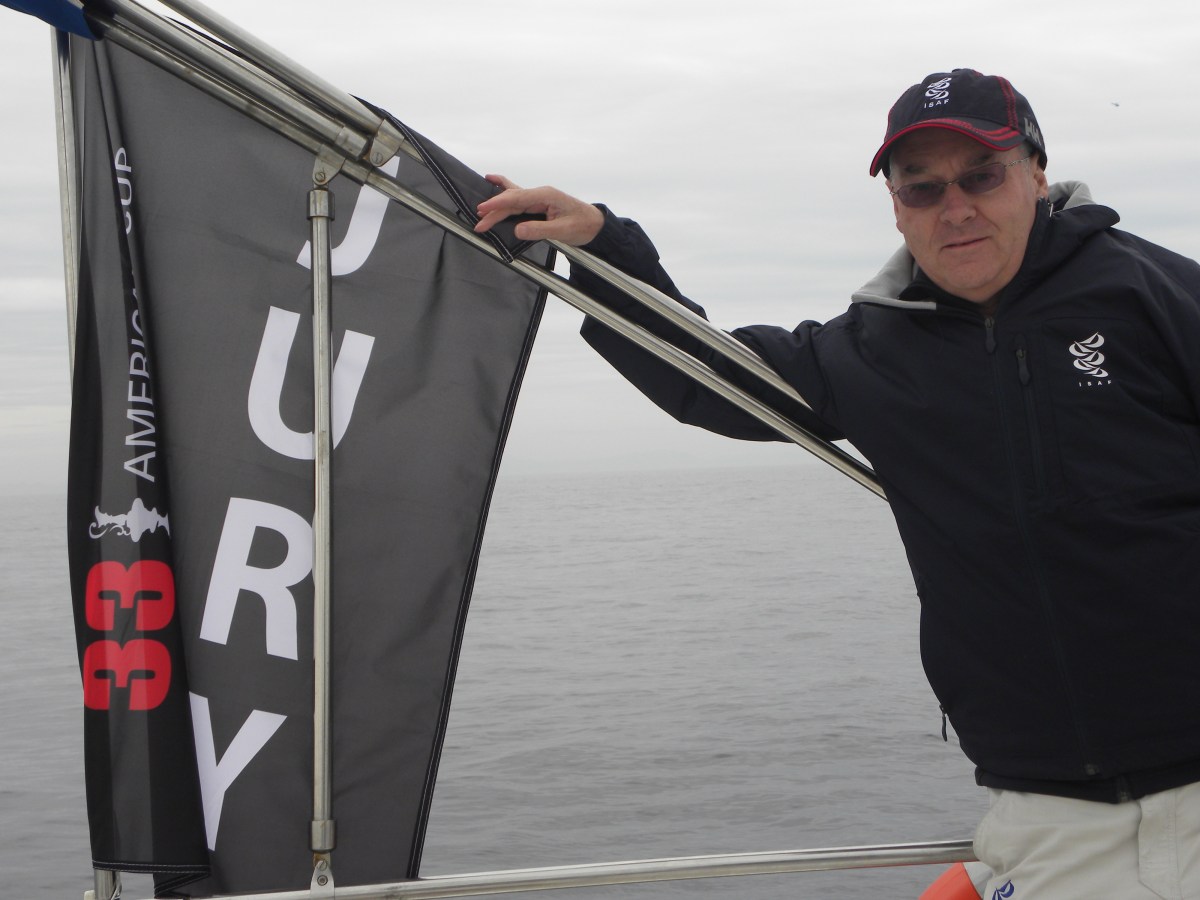
Tillett manning the jury boat at the 2010 America’s Cup in Valencia – his sixth time officiating the event. Photo: supplied
For his part, Tillett has been involved in eight America’s Cups as an umpire and/or jury member.
His first appointment came in 1992 when he was asked to adjudicate the upcoming series between the US and Italy, just nine years after Australia II’s famous triumph in the 1983 America’s Cup.
Asked whether he felt it was a pressure moment officiating the lucrative race for the first time, Tillett said: “It was in one sense … [I] was doing something at a higher level than I’d done before.”
“But you do your umpiring with another umpire on the boat calling it, and it’s probably a bit like umpiring football – you just call it as it occurs,” he added.
“The way it works is one umpire takes one boat, the other umpire takes the other boat and you call what they’re doing and the rules that are applicable.
“That’s the beauty about umpiring on the water is it’s on the field of play, the decisions are immediate.
“But you can have matters that aren’t on the field of play – measurement and various other rules – and they are dealt with in hearings that are separate.
“The America’s Cup has a lot of that involved in it due to the technicalities of the rules.”
Tillet’s favourite event, however, is the Olympics, where he has been jury chairman four times since 1996.
The Games are also where Tillett’s extensive work in the backrooms of sailing administration was first thrust into the global spotlight, when a series of unprecedented events left the outcome of a gold medal in his jury’s hands.
It was the last race of the 2008 Beijing Olympics 49er class event when 30 knot winds, low visibility and “atrocious” weather conditions began pelting the Yellow Sea.
Around 15 minutes before the start, the first-placed Danish team – only needing to finish seventh to claim gold – suffered a catastrophic failure when their mast split open leaving them without a boat for the final race.
But the Danes caught a remarkable break when the Croatian team, who had failed to qualify for the final, offered to lend them their dinghy.
Starting nearly two minutes behind the field – and only three seconds clear of disqualification – in an unfamiliar boat with weather conditions that saw much of the field capsize, the Danish team managed to scrape through for the requisite seventh-place to claim an unlikely gold.
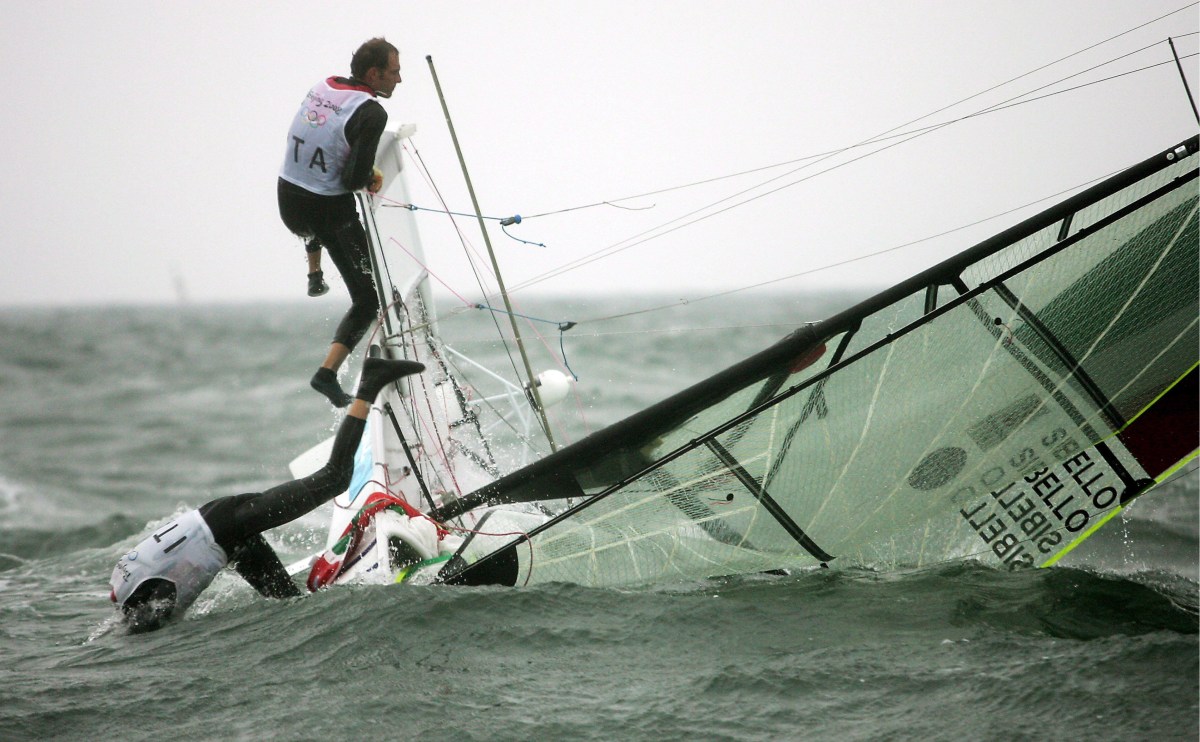
The final race of the 2008 Olympic 49er class event saw many teams, including Italy, capsize in the treacherous conditions (Photo: EPA/Olivier Hoslet).
Inevitably, the circumstances surrounding the race would prompt a raft of protests from the second-placed Spanish and fourth-placed Italians, who claimed a number of rules were broken during the boat swap.
Tillett chaired and appointed the five-member international jury tasked with making a ruling on the protest.
“You’re deciding an Olympic gold medal, you’re dealing with a matter that is quite unprecedented, something that nobody would have foreseen was going to be occurring,” Tillett said.
Deliberating long into the night, the panel decided to reward the skill of the Danish sailors and dismiss the protest.
The decision was appealed to the International Olympic Committee and then the Court of Arbitration for Sport, where despite coming under rigorous scrutiny, it was upheld.
Reflecting on the ruling nearly 14 years later, Tillett says he has never seen circumstances like it again.
“I think it was one of the most rewarding decisions that we did because it meant that the boat that won on the water against all of the adversity kept the gold medal,” he said.
“It was very complicated and so forth, but it was really great to have a decision like that.”
Tillett says he has never had a decision made by one of his juries overturned, with only four appeals ever making it to the Court of Arbitration.
‘A sport for life’
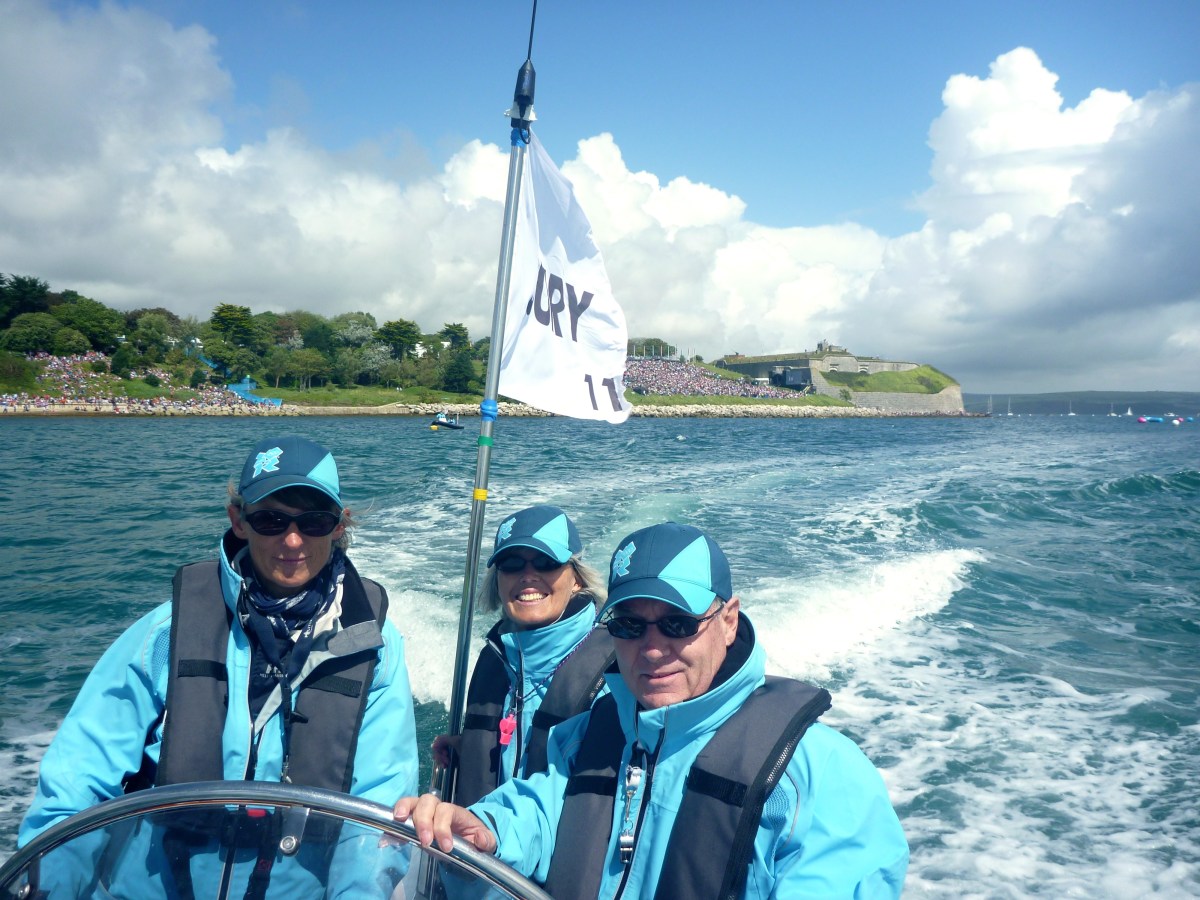
Tillett on the Olympic jury boat in the much calmer seas of Weymouth Bay at the London 2012 Games. Photo: supplied
With his career in sailing now stretching into its seventh decade, Tillet says he still has a passion for the sport’s social qualities even if he can’t get out on the water “anywhere near as much as I used to”.
“The beauty about sailing is you can be somebody who doesn’t have a lot of money who can go down and become involved in the sport and sail with other people,” he said.
“It’s also a sport for life.
“You’ve got the involvement of people from six, seven years of age … right through to people who are still sailing well into their 80s, 90s.
“[The social aspect] is the backbone for most people who are involved with it.”
In assessing sailing’s legacy in Australian sport, he points to the 1983 America’s Cup win and Australia’s two gold medals won on Sydney Harbour at the 2000 Games as the high-water marks of the sport’s influence.
Tillett was appointed a Member of the Order of Australia in 2014 in recognition for his services to sailing.
With no intention to leave the sport anytime soon, he is set to lead the international jury for the next rendition of the America’s Cup in 2024.
The 2021 class will be inducted into South Australian Sport Hall of Fame at a black-tie event at Adelaide Oval on April 8. For more details and to purchase tickets, go here.




